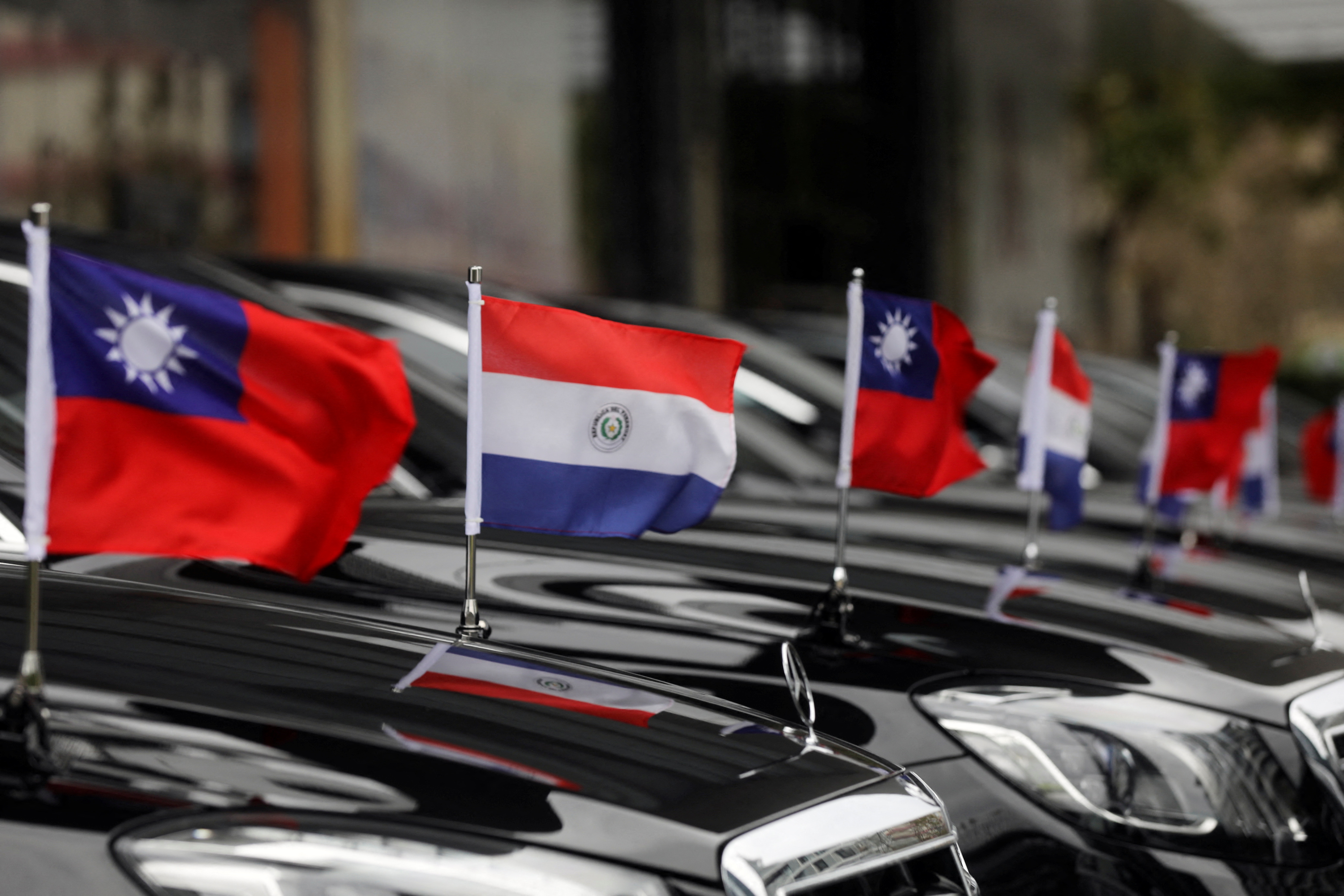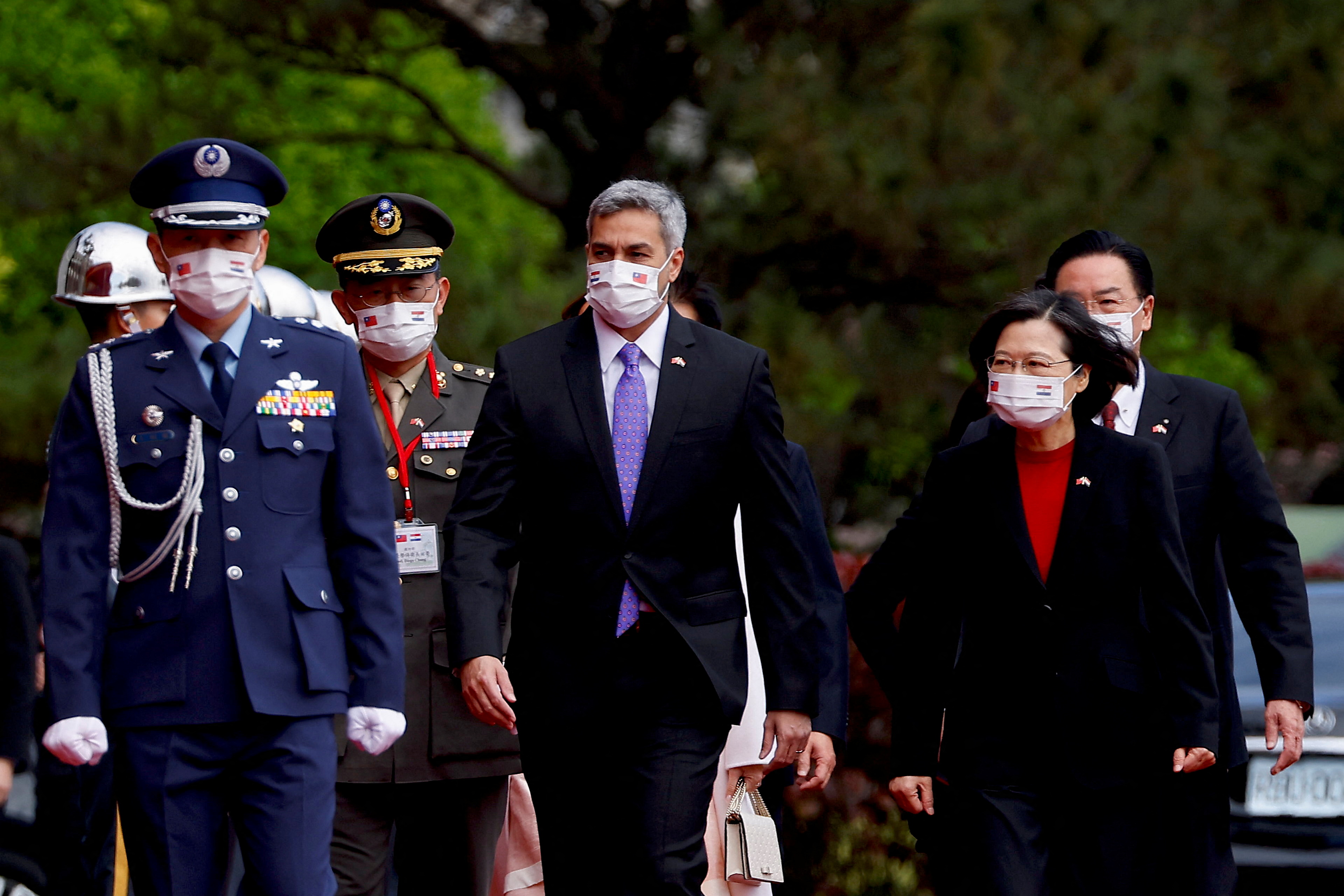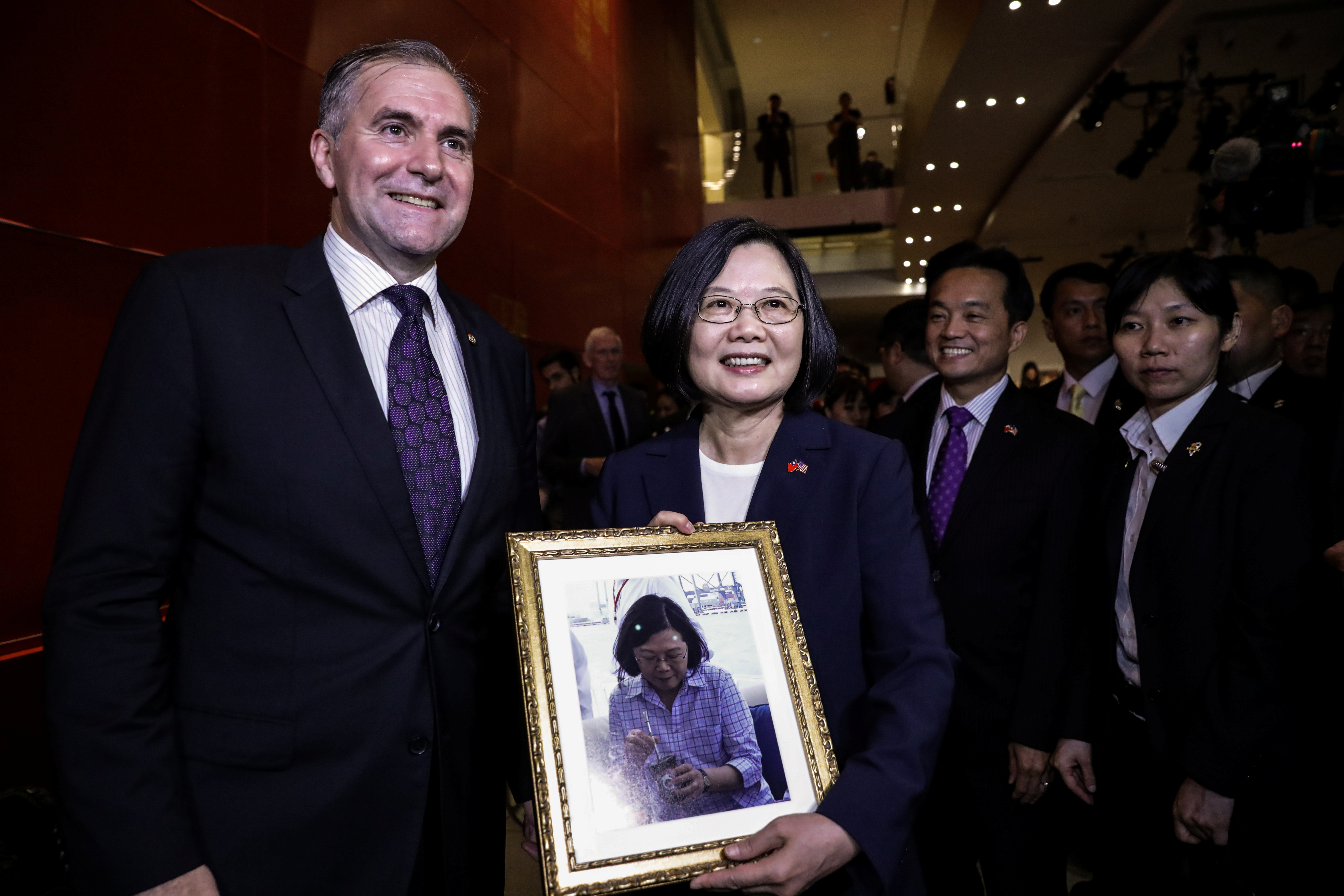
On March 25, Taiwan’s foreign diplomacy was dealt a devastating blow.
Honduras announced that, after decades of having diplomatic relations with Taiwan, its government would switch to recognising the People’s Republic of China as the “only legitimate government that represents all of China”.
“Taiwan is an inseparable part of Chinese territory,” the Honduras foreign ministry affirmed on March 26, echoing Beijing’s “One China” policy, which refutes any notion of the island’s independence.
Taiwan is now left with a mere 13 formal diplomatic allies, mostly in Latin America and the Caribbean. And on April 30, that number risks being reduced to 12 as Paraguayans head to the polls to elect a new president.
Two candidates are currently leading the race. One is Santiago Peña from the conservative Colorado Party, which led the country for much of the 20th century and has continued to be a prominent political force, including under current President Mario Abdo Benítez.
But this year, the party’s reign might come to an end. Efraín Alegre of the more centrist Authentic Radical Liberal Party (PLRA) is also a frontrunner, and he has posed a serious threat to the Colorado’s Party longstanding dominance in the country.
While Peña has pledged to maintain relations with Taiwan, Alegre has stated that he will break ties with Taiwan if elected and recognise the People’s Republic of China instead.

Such a decision would result in Taiwan losing its last formal diplomatic ally in South America, ending one of the island’s most enduring bilateral relationships.
“Santiago Peña is currently the favourite candidate, but the election is still open and Efraín Alegre could win,” Paraguayan sociologist Camilo Soares told Al Jazeera.
Paraguay and Taiwan first formalised their diplomatic relationship in 1957. Since then, support for Taiwan and opposition to “Communist China” have been a staple of Paraguayan foreign policy.
“Paraguay has always been a faithful ally that has not left [Taiwan] alone on the difficult path that seeks to break the unjust isolation that Communist China imposes on us,” said José Chih-Cheng Han, the Taiwanese ambassador in Asunción, in a statement provided to Al Jazeera.
But the Paraguayan-Taiwanese relationship is also predicated on economic interests.
Taiwan has invested millions of dollars into Paraguay for projects like high-voltage transmission systems and fish production. Taipei has even established a prestigious engineering university in Asunción.

Maintaining relations with Taiwan, however, has come at a price. China has offered no aid, investment or finance to Paraguay as a result of its ties to Taiwan. Political scientists Tom Long and Francisco Urdinez have called it the “Taiwan cost” — the loss of economic opportunity from China.
In their 2021 study, Long and Urdinez found that Taiwan invested an average of $4m a year in Paraguay between 2005 and 2014, and provided the country with an average of $14.8m in aid.
But those numbers were dwarfed by the economic boost China offered to other countries in the region, as South America’s top trading partner.
Long and Urdinez estimated that, on average, Latin American and Caribbean countries with diplomatic ties to China enjoyed investment, aid and loans equal in value to about 1 percent of their entire gross domestic product.
And according to the China Global Investment Tracker, Chinese state-owned enterprises funded $11.3bn worth of projects in South America.
Economics were ultimately a deciding factor in Honduras’s relations with Taiwan, too. In the lead-up to severing ties, Honduras denied media reports that it had demanded $2.5bn in aid from Taiwan, saying instead that it had asked the island for help refinancing its debt.
Honduras’s Foreign Minister Eduardo Enrique Reina ultimately called the shift in relations to China a question of “pragmatism, not ideology” in the face of economic hardships.

Similarly, in an interview with the Financial Times in September, Paraguay’s President Abdo called for Taiwan to invest $1bn to remain allies. His government later walked back that comment, saying continued relations would not hinge on extra investments.
The Liberal candidate Alegre, however, has campaigned on the prospect that recognising China would help boost Paraguay’s livestock and grain sectors.
But his conservative rival Peña has doubled down on his support of Taiwan, saying in a January CNN interview that Paraguay’s “strategic triangle” of allies in Taipei, Jerusalem and Washington was an important tool for development.
Still, Soares, the sociologist, believed Peña’s support of Taiwan may not last forever.
The conservative candidate’s party has faced persistent corruption allegations. The US recently sanctioned Peña’s political mentor, former President Horacio Cartes, for undermining Paraguay’s democracy by “making cash payments to officials in exchange for their loyalty and support”.
Soares said Peña’s allegiance to Taiwan is likely a tool to curry US support. But if the US chooses to sanction Peña on corruption allegations as well, Soares speculated that the conservative candidate may turn to China instead.
“The US knows that if they sanction Santiago Peña and he wins the election, the Chinese are here in Buenos Aires and São Paulo, sitting and waiting to offer Santiago Peña all their support,” Soares said.
“In the future, Peña may not want to solely rely on the Americans’ support and may decide to play a geopolitical game of equilibration.”

So far, Peña has shown no indication of planning to accept support from Beijing. Rather, he has accused his rival Alegre of being a communist for wanting to recognise China over Taiwan.
Alegre has denied those accusations. He has instead framed his support for China as being based on economic pragmatism.
Foreign policy analyst Julieta Heduvan said she believes Peña’s harangues towards Alegre are an attempt to make him a more polarising figure, particularly among Paraguay’s powerful political figures.
“I don’t think that support for Taiwan is such a decisive issue for the population,” Heduvan said. “But political elites are very involved with Taiwan, so maybe [Peña’s] messaging is more for those elites than for the general population.”
Indeed, both Soares and Heduvan told Al Jazeera that the average Paraguayan is probably not deeply invested in the Taiwan-China issue. Voters are more likely to be preoccupied with corruption and the economy in the run-up to the election, they said.
But for Taiwan, the upcoming election is a question of utmost geopolitical importance.
Han, Taiwan’s ambassador in Asunción, said in a statement that his embassy was holding talks with all “the main presidential candidates in these upcoming elections”, including Alegre.
He also accused China of taking “advantage of the free market for their own interests”.
“Our challenge is getting bigger every day,” Han said. “But the world is watching and time will prove us right.”







